33 Feng Shui (风水) Tips for Success, Health & Prosperity
Feng Shui (风水), also known as Chinese geomancy, is an ancient art of placement, arrangement, and displacement throughout space (and time).
Sound confusing? Well, Feng Shui is rather complicated and actually best done by a Feng Shui professional. Feng Shui pros come in many forms: consultants with deep knowledge & experience, Wu (巫) practitioners (shamans) or Tongji (童乩): advanced spirit mediums whose lives are said to be lived almost entirely in service of the spirits.
At Vantage West Realty, we’re learning how to apply the basic principles of Feng Shui into our interior and outdoor spaces to improve energy flow, maintain balance & harmony, and broaden our cultural horizons.
Some of the many benefits we've learned about Feng Shui include:
- a more harmonious and welcoming home environment
- success, wellness, and happiness
- a home filled with 'good spirits' and without 'bad spirits'
Whether you are spiritual or not, integrating Feng Shui principles can also lead to better style for your guests, enhanced physical flow through the spaces, and fresh designs that inspire within you joy, positivity, and success.
10 Core Principles of Feng Shui
🔹 Qi Flow (气 - Life Energy) – The unseen force that must move freely through a space, neither stagnant nor too fast, guiding health, prosperity, and well-being.
🔹 Clutter Clearing & Space Purification – The removal of physical and energetic stagnation to allow fresh Qi to circulate freely and vibrantly...
🔹 The Commanding Position – The principle that key areas (beds, desks, stoves) should be placed in a position of control, facing the entrance but not directly in line with it.
🔹 Balance & Harmony (阴阳 - Yin & Yang) – The dance of opposites, ensuring equilibrium between dark and light, soft and hard, passive and active energies.
🔹 The Five Elements (五行 - Wu Xing) – The fundamental forces (Wood, Fire, Earth, Metal, Water) that must be balanced and nurtured to create harmony in any space.
🔹 Bagua Map (八卦 - Eight Trigrams) – The energetic blueprint used to divide a space into areas corresponding to aspects of life (wealth, relationships, career, etc.).
🔹 Direction & Orientation (Compass School - 罗盘 Luó Pán) – The importance of cardinal directions in determining optimal placement and alignment for prosperity and protection.
🔹 Supportive Backing (Tortoise Back Principle) – Ensuring solid support behind key spaces (homes, offices, beds, chairs) to provide stability, protection, and success.
🔹 Symbolism & Intention – Every object, color, and placement carries meaning, and intentional use of symbols (e.g., wealth bowls, lucky bamboo) influences energy flow.
🔹 Natural Elements & Lighting – Integrating natural light, fresh air, water features, and greenery to enhance life force energy and create a nurturing environment.
Remember, Feng Shui is more than just furniture placement; it's a time-honored practice rooted in ancient Chinese philosophy that’s been respected for thousands of years — at least.
Now, here are 33 Feng Shui principles to improve your home's ambiance and spiritual health (written by a Feng Shui novice!!!)...
33 Feng Shui Secrets for Home Success in Business, Work, Life
Read these 33 Feng Shui tips by Devan to keep your home looking fresh and feeling great, all year-round!!!
(1) Clear Away Clutter
Clear up clutter on a regular basis in your living room, bedroom, home office, and kitchen. A tidy space promotes clarity and reduces stress.
Dirty areas prevent good energy flow, capture bad energies, and can even invite bad spirits into the home, according to spiritual practitioners.

(2) Balance The 5 Elements
In traditional Feng Shui, the five elements—Wood, Fire, Earth, Metal, and Water—are the foundational energies that shape the environment and influence prosperity, relationships, and personal power.
For members of the international Chinese community, where symbolism, legacy, and energetic alignment are key, keeping these five elements in harmony within your indoor space and outdoor areas is both decorative and strategic.
With correct effort, you can balance and activate the energies of the 5 elements, leading to an illustrious life
From using earth-toned ceramics to enhance stability, to placing metal-framed mirrors for clarity and precision, or adding live plants and flowing water features to encourage growth and abundance—each decorative choice can serve a dual purpose: aesthetic appeal and energetic intent.
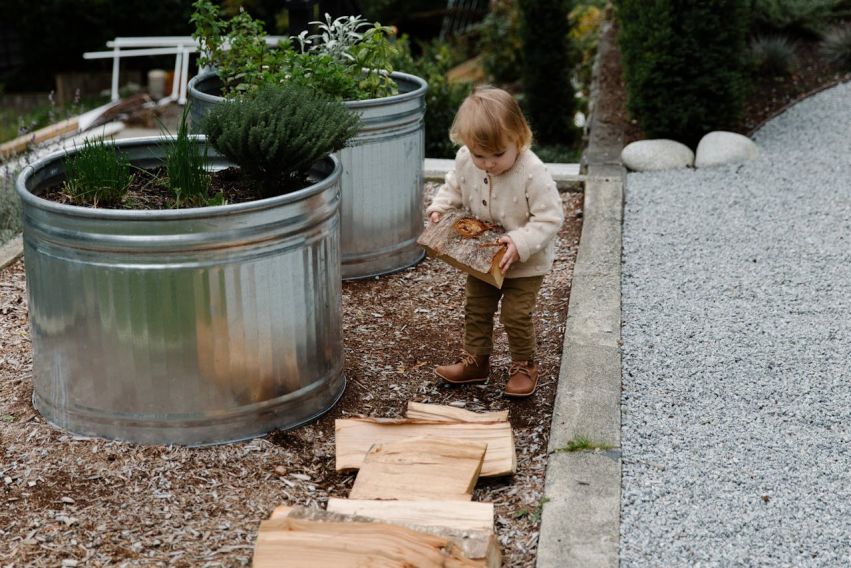
(3) Sit in a Command Position
So you can see everything coming your way, arrange your chair to face the room's entrance without being directly in line with the door.
You should have a solid wall or high-backed chair at your backside. Known as the tortoise back, this position offers you support, stability, and protection from unseen distractions or energetic intrusions.

(4) Deploy Natural Light
Maximize sunlight to invigorate energy flow.
In Feng Shui, sunlight is not just a physical necessity—it is a direct channel of yang energy, bringing warmth, life, and clarity into a space. Sunlight activates qi, the life force energy that fuels momentum, confidence, and presence. When sunlight enters your space through windows and skylights, it awakens dormant energy, clears stagnant zones, and enhances alertness—both mental and spiritual.
Position your main gathering or strategy spaces—like meeting rooms, lounges, or altars—where they receive ample daylight to ensure decisions are made in clarity, not in the shadows of darkness.

(5) Mirror Placement
Mirror placement is a powerful feng shui tool for expanding visual space and circulating qi throughout a room. When positioned thoughtfully, mirrors can reflect light and auspicious symbols, doubling the positive energy in a space.
However, placing a mirror directly opposite the bed is discouraged, as it can disrupt restful energy and invite spiritual unease during sleep. Instead, aim to place mirrors where they reflect natural light, beautiful views, or symbols of abundance.
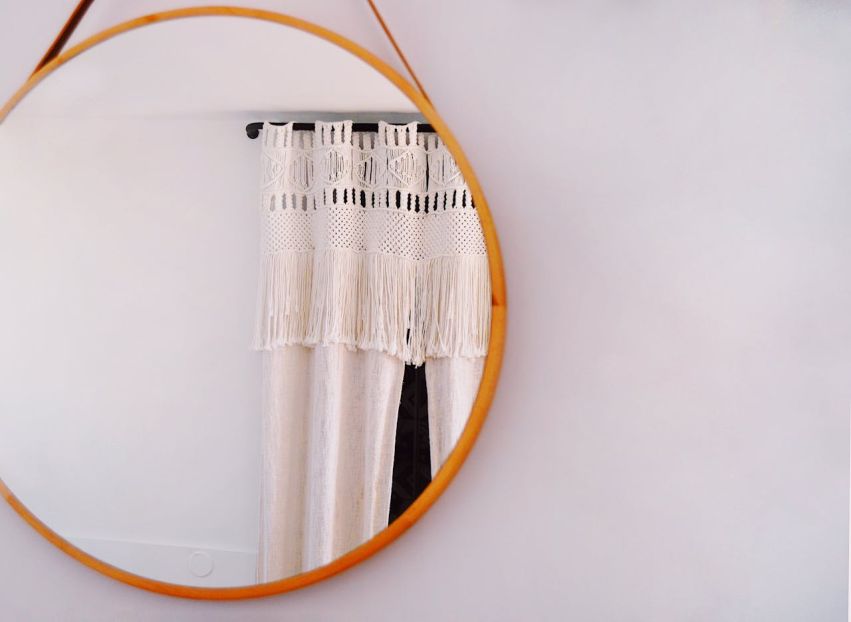
(6) Front Door Energy
In Feng Shui, the home entrance & front door are known as the “Mouth of Qi”— the primary portal through which energy, opportunity, and wealth enter your life.
A clear, unobstructed front door ensures that beneficial qi flows into your space without hesitation or resistance. Overgrown plants, cluttered shoes, broken fixtures, or tight pathways act like spiritual blockages—repelling luck and stagnating movement.
The door itself should feel solid, secure, and commanding.
A strong front door symbolizes personal strength and leadership. Make sure it opens fully without squeaking or resistance—this shows the universe that you're ready to receive without limitation.

(7) Fix Leaks!
Fixing leaks is essential in feng shui, as uncontrolled water represents draining wealth and missed opportunities.
Even small drips can energetically signal financial instability or emotional leakage over time.
Address all leaks promptly to preserve prosperity and maintain balanced, flowing qi in your space.
Placing a water fountain near a door in Feng Shui is a no-no; it is believed that wealth then flows out the door.
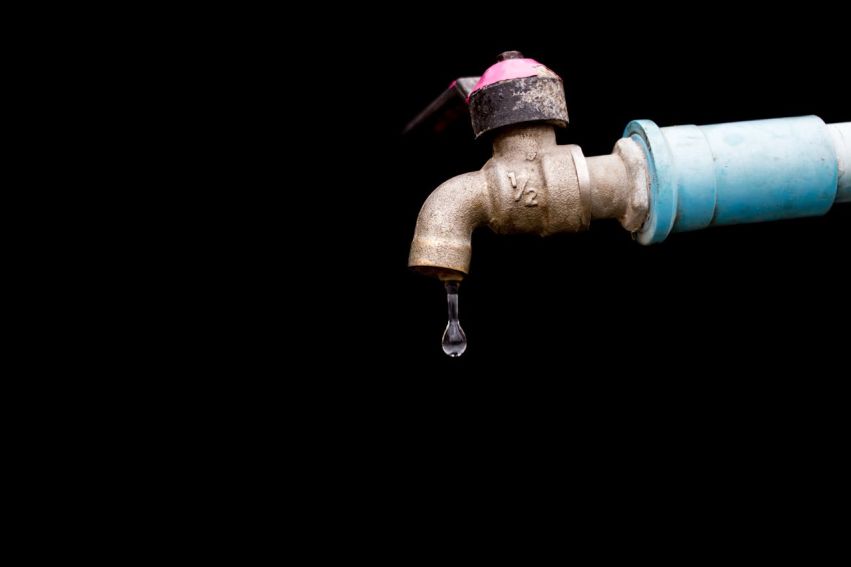
(8) Get Plants!!!
Plants in feng shui are living expressions of growth, renewal, and vibrant qi.
Introducing healthy, thriving plants into your space not only purifies the air but also uplifts the energetic field, promoting vitality, focus, and emotional balance.
Orchids are considered especially auspicious, symbolizing refined beauty, inner strength, and the cultivation of higher wisdom. Their elegant form and serene energy make them ideal for altars, meditation spaces, or quiet corners where you wish to deepen spiritual insight and attract graceful abundance.
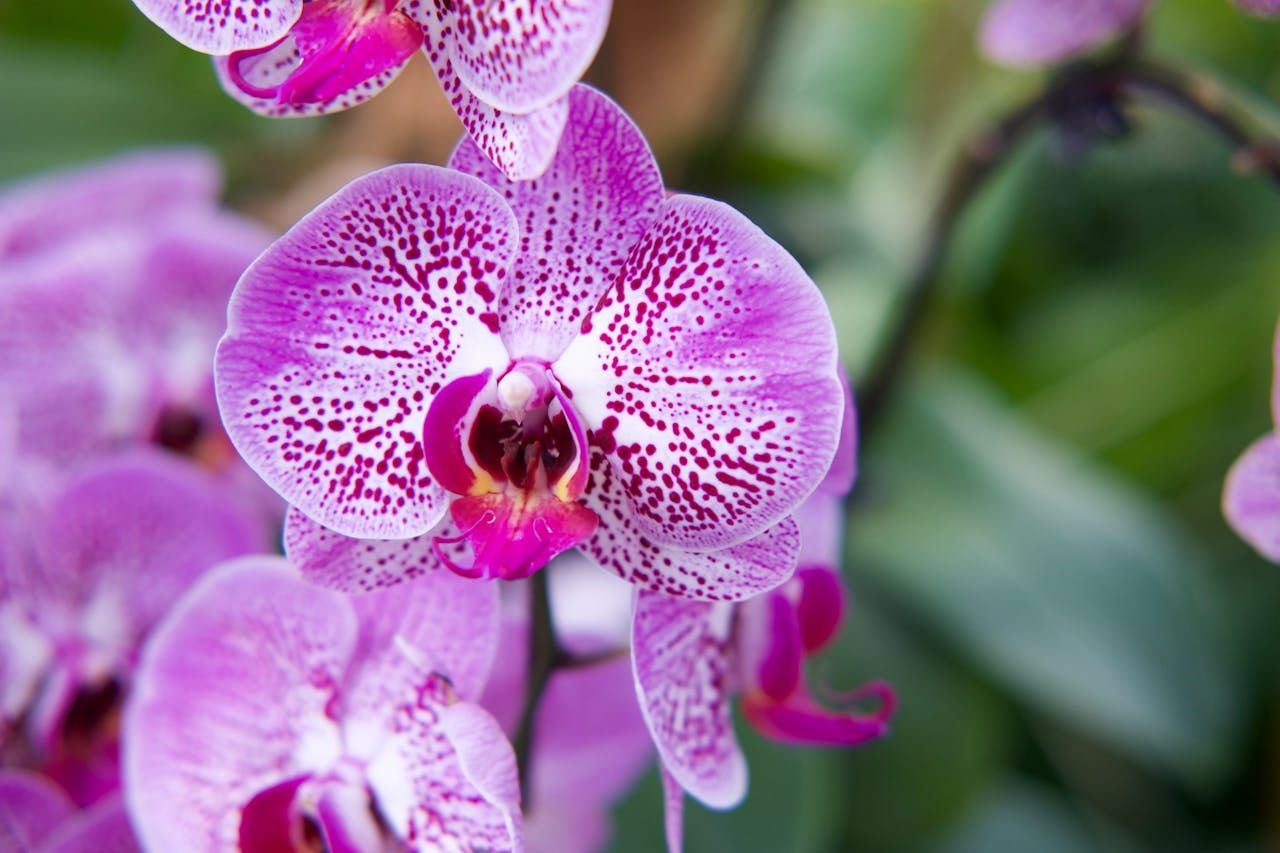.jpg?w=851)
(9) Color Psychology
Color plays a powerful role in feng shui, influencing mood, energy flow, and the overall intention of a space. Choose patterns and hues that align with your goals:
blue promotes calm and clarity
red ignites passion, fame and represents fire
yellow brings warmth, joy, and mental stimulation
green encourages healing, growth, and fresh beginnings
white symbolizes purity, precision, and new cycles
black enhances mystery, depth, and wealth attraction, while absorbing and deflecting darkness
purple is associated with spiritual awareness, the third eye, and high-level wisdom
brown grounds the energy, offering stability, support, and a sense of connection to the Earth
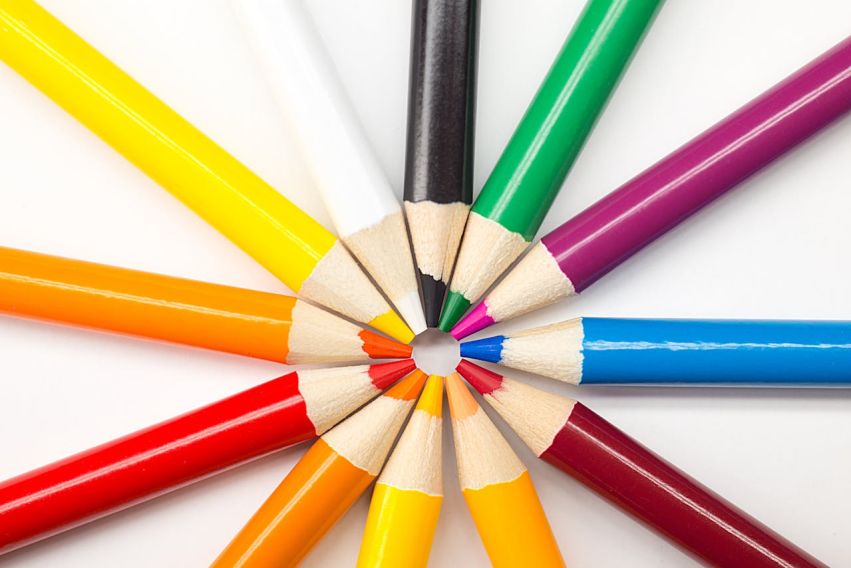
(10) Feng Shui Bedroom Sanctuary
In feng shui, the bedroom is a sacred space for rest, rejuvenation, and intimacy, making it essential to keep the environment free from disruptive energies—especially those from electronics.
Devices such as TVs, smartphones, tablets, and computers emit electromagnetic fields (EMFs) that can disturb your sleep cycle, creating restless nights and even disrupting the flow of your chi.
To foster deep, restorative sleep, remove electronics or keep them at a distance from the bed, allowing the space to remain calm, clear, and conducive to rest.
Instead, incorporate soft, soothing elements—like natural fabrics, calming colors, and plants—that support relaxation and tranquility.

(11) Desk Placement
Your desk placement is critical—it represents your career, decisions, and the outward expression of your purpose.
Position your desk so you can clearly see the main entrance to the room, without sitting directly in line with it; this allows you to welcome opportunities while remaining energetically protected.
(12) Open Hallways & Pathways
Clear and unobstructed hallways are essential for maintaining the free flow of energy, or chi, throughout your space. Richly or sparsely appointed halls with artful, carefully chosen decor can subtly direct the flow of chi, guiding it toward your most important rooms, such as your office or dining area, where key decisions and gatherings occur. Keep pathways and hallway art well-lit, spacious, and inviting in order to reinforce a sense of ease, abundance, and foster continuous growth.
(13) Art Selection
When selecting artwork for your home, choose pieces that uplift and balance the energy of the room to create a sense of harmony, abundance, and positive transformation. Meaningful artwork that resonates with your personal goals can inspire creativity, attract wealth, and promote emotional well-being.
For instance, images of nature, flowing water, or vibrant landscapes represent the Wood and Water elements, encouraging growth and prosperity, while abstract pieces can spark dynamic energy and inspiration.

(14) Headboard Stability
A sturdy, well-constructed headboard represents both physical and emotional support.
In Feng Shui, the headboard symbolizes a strong foundation in your personal and professional life, offering you stability during rest and strengthening your sense of personal security.

(15) Bed Accessibility
Ensure access from both sides for balanced relationships based on equality, harmony, and openness.
A balanced layout invites mutual respect, partnership, and the free flow of energy between you and your significant other—or future partner.
(16) Kitchen Cleanliness
In Feng Shui, the kitchen represents nourishment and prosperity, so keeping it clean and clutter-free supports both health and financial flow.
The stove is a powerful wealth symbol—keep it spotless, use all the burners regularly to activate multiple income paths, and consider a reflective surface behind it to amplify abundance.
A well-maintained kitchen invites balanced, thriving energy into the home..
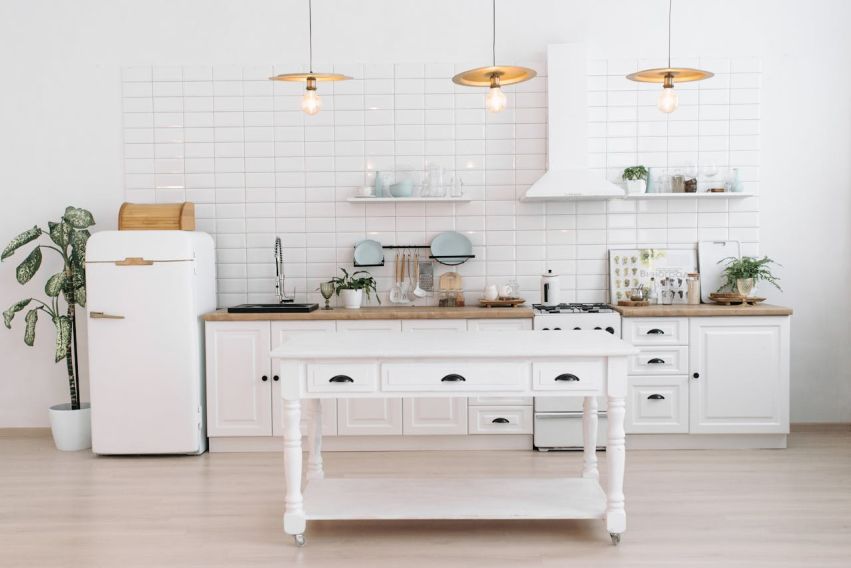
(17) Dining Area
Your dining area represents nourishment, abundance, and family connection, so it should be warm, inviting, and clutter-free.
Use a round or oval table to encourage harmony and conversation, and place a mirror nearby to symbolically double the food and amplify wealth energy.
Soft lighting, fresh flowers, and earthy tones enhance comfort and create a space where both energy and relationships can flourish.
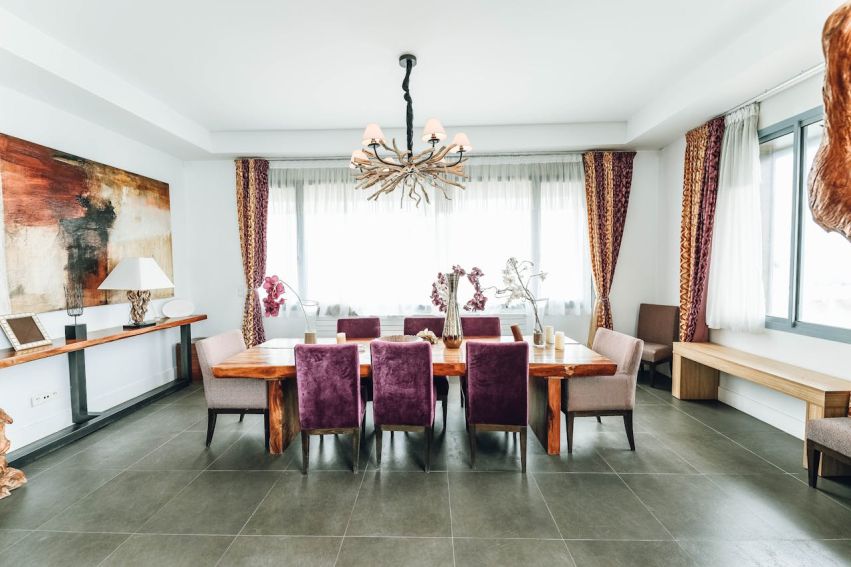
(18) Rounded Furniture
Furniture with soft edges helps to promote a smooth flow of energy throughout your rooms. Try to minimize sharp corners, which can cause harsh or aggressive energy if misaligned with the qi flow (chi).
(19) Staircase Alignment
Avoid direct alignment with the front door.
A staircase that directly faces the front door can cause energy (and wealth) to rush out too quickly, leading to a sense of instability or financial drain.
To counter this, use visual barriers like plants, screens, or rugs to gently redirect chi and encourage it to circulate throughout the home rather than escaping.
(20) Ceiling Beams
Exposed ceiling beams are considered sources of oppressive, cutting energy—especially when positioned over areas where you rest or sit for long periods. Sleeping under a beam is particularly problematic, as it can create a feeling of heaviness, disrupt sleep quality, and even contribute to physical discomfort or emotional stress over time.
This is because beams symbolically “press down” on the energy field, fragmenting the smooth flow of chi and creating subconscious tension. To remedy, aim to conceal beams with fabric, architectural design, or paint that blends them into the ceiling—or reposition your bed or seating area to avoid being directly beneath them.

(21) Shoe Storage
Shoes represent the energy we carry in from the outside world—both physically and symbolically.
Leaving shoes scattered at the home entrance or throughout the home can create visual clutter and disrupt the smooth flow of chi, inviting chaotic, unsettled energy into your space.
Properly storing shoes in a closed cabinet or designated area near the entryway not only promotes organization and cleanliness, but also supports a sense of grounding, stability, and respect for the home.
(22) Bathroom Doors Closed
Because bathrooms involve frequent draining—flushing, washing, and emptying—they are seen as places where energy can literally and symbolically "drain away."
Leaving the bathroom door open allows this downward, dispersing energy to seep into nearby spaces, potentially diminishing prosperity, focus, and health.
Keeping the door closed contains that energy, helping to maintain a strong, balanced chi throughout the rest of your home.
(23) Entryway Rug
In traditional Chinese Feng Shui, the entryway is considered the “mouth of Qi”—the primary point where energy enters the home or business. A red or gold rug at the threshold is decorative, symbolic of power, and a spiritual invitation…
Red represents yang energy—vitality, luck, and protection—while Gold invokes wealth, prestige, and authority.
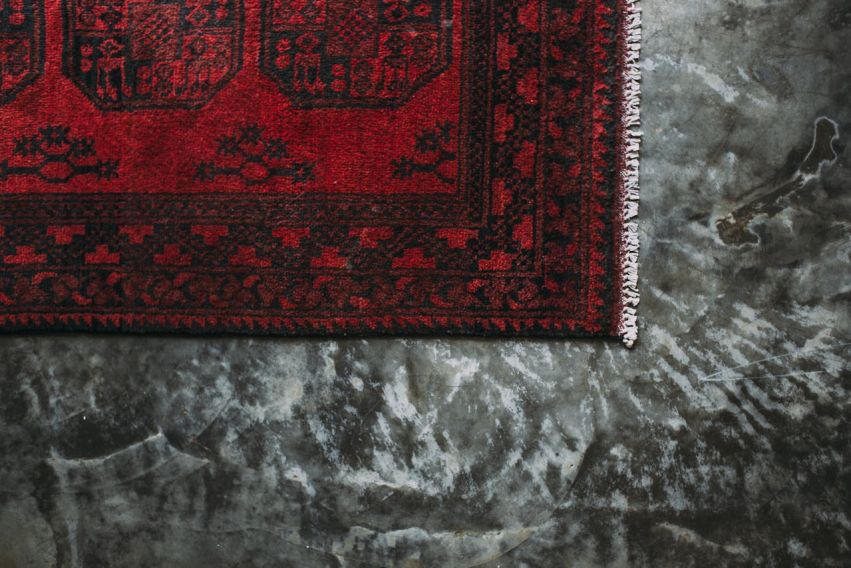
(24) Aromatherapy
In the Chinese Five Elements theory, scent falls under the influence of the Wood element, which governs growth, decision-making, and the liver—the organ connected with strategy and planning.
Incorporate pleasant scents to uplift mood. encourage balance and success, trigger specific personal responses.
For focus and clarity, sandalwood or cedar.
For magnetism and respect, amber or oud.
For calm power and negotiation strength, lavender blended with citrus can encourage openness without weakness.
Use a diffuser in the entry or main living area, or mist lightly over seating zones.
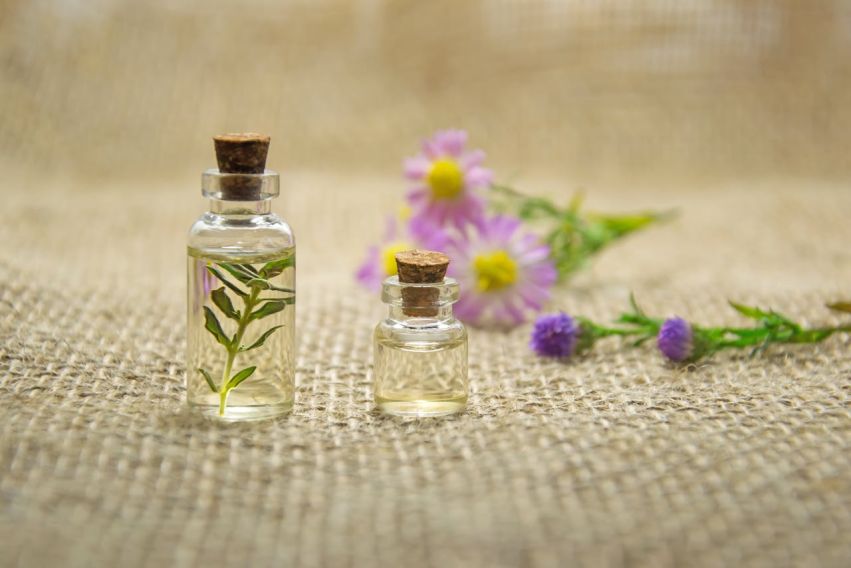
(25) Wind Chimes
Wind chimes are powerful tools for breaking up stagnant or negative energy and encouraging a gentle, harmonious flow of chi.
Hung near doors, windows, or in troublesome corners, they use sound vibration to clear energetic blockages and attract positive movement, protection, and clarity.

(26) Crystals
Crystals are natural energy conductors that can be placed throughout the home to enhance specific intentions—such as clarity, abundance, love, or protection.
Each type of crystal holds unique energetic properties, and when placed thoughtfully (e.g., rose quartz in the relationship corner or citrine in the wealth area), they help magnify positive chi, balance the five elements, and elevate the spiritual frequency of your space.
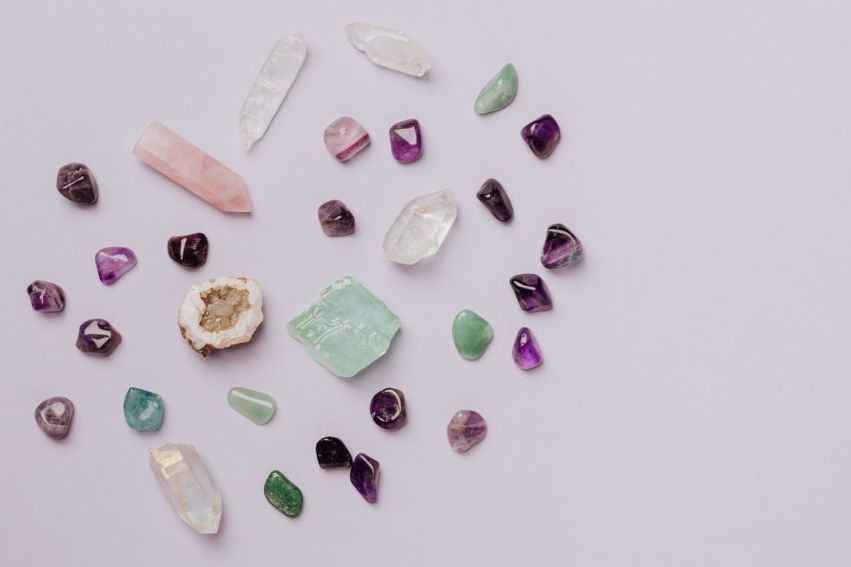
(27) Water Features
In Chinese metaphysics, water is the most powerful symbol of wealth. Water is soft, yet it overcomes the hard; a quiet power that cultivates respect, but without aggression.
Keep in mind that not all water is the same in the Feng Shui system—moving water, such as that found in fountains, is seen as active, circulating energy that mirrors the flow of income, connections, and opportunities.
Place fountains to stimulate wealth, ensuring water flows toward the center of the home.

(28) Aquariums
Aquariums combine two potent Feng Shui elements—water (symbol of wealth) and fish (symbol of abundance and movement). The presence of healthy, active fish in clear water reflects a prosperous and dynamic environment.
In many Chinese traditions, the number and type of fish also matter—8 goldfish and 1 black fish is a classic combination for drawing fortune and absorbing negative energy. The black fish, in particular, is said to “take the hit” when bad luck approaches—offering unseen protection.

(29) Storage Solutions
Visible clutter represents scattered focus and unresolved issues. In Feng Shui, external disorder reflects internal disarray.
For those who value discipline and discretion, using closed storage is a way to project and preserve inner control, giving space for strategic clarity and mental strength. Use cabinets, baskets, and covered boxes to store items that aren’t in daily use.
Prioritize wood or natural materials over plastic for their grounding energy.
(30) Avoid Overcrowding
In Feng Shui, Qi (energy) needs space to circulate. Too much furniture, or pieces crammed into tight corners, can block opportunities, create tension, and affect mood.
Spaciousness, by contrast, invites peace, authority, and a sense of natural flow—much like a well-run organization or inner circle.
Allow space between furniture for energy movement and avoid placing large items directly in front of doors or windows.
(31) Electronic Placement
Electronics give off constant electromagnetic fields (EMFs) and yang energy.
In high-yang areas like workspaces, this energy is appropriate. But in rest zones—particularly bedrooms—excessive yang disturbs sleep, erodes emotional regulation, and weakens your protective Qi over time.
Keep electronics out of sleeping areas whenever possible. If you must have them, unplug at night or place them in a closed drawer. Avoid mirrors reflecting devices, as this doubles the energetic load.
(32) Regular Maintenance
A leaking faucet, broken door hinge, or flickering light isn’t just a nuisance—it’s an energetic leak.
In Feng Shui, broken or neglected items create subtle drains on personal power, discipline, and success.
Maintenance is an act of respect toward your environment—and yourself.
(33) Personal Symbols
Display items that resonate with personal success. Symbols of your own achievements, aspirations, or cultural heritage act as powerful anchors for intention, reinforcing your inner narrative and calling in the energy of success.
Whether it's a meaningful heirloom, a photo from a pivotal moment, or an object that represents a long-held goal, these items radiate significance and remind you of your purpose.
Place them in areas aligned with the Bagua map—such as the fame, wealth, or career zones—to amplify their influence and keep your space deeply connected to your evolving vision.
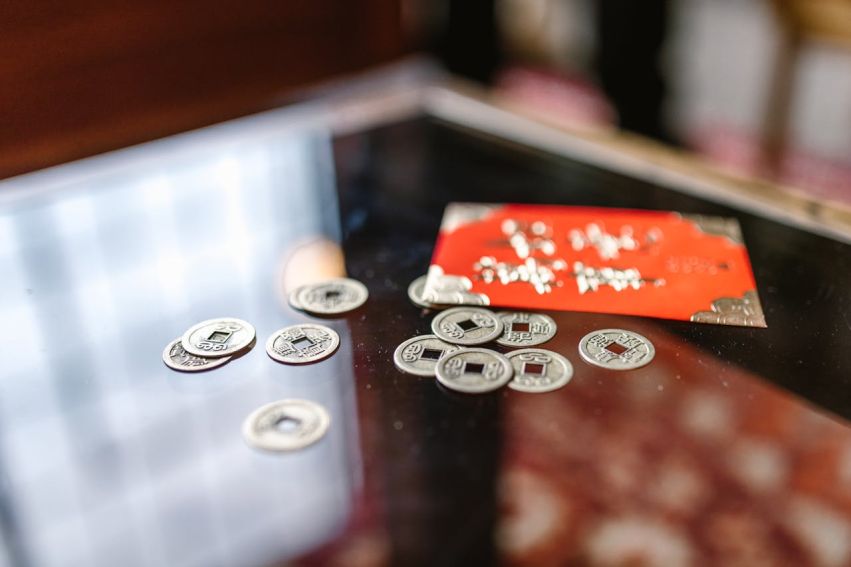
Conclusion...
. By thoughtfully applying these Feng Shui house layout principles, you shape your home's energy for harmony, success, and well-being.
.. More than just furniture placement, Feng Shui is a time-honored Chinese practice that balances natural forces to attract prosperity.
… Align your space, unlock opportunity—because in Feng Shui, and in life, balance is wealth.
Remember that this was not written by a Feng Shui expert, but rather a guest post by Devan Gaffney, a burgeoning student of Chinese mythology and culture.
RELATED CONTENT: 2025 YEAR OF THE SNAKE FENG SHUI DECOR TIPS


